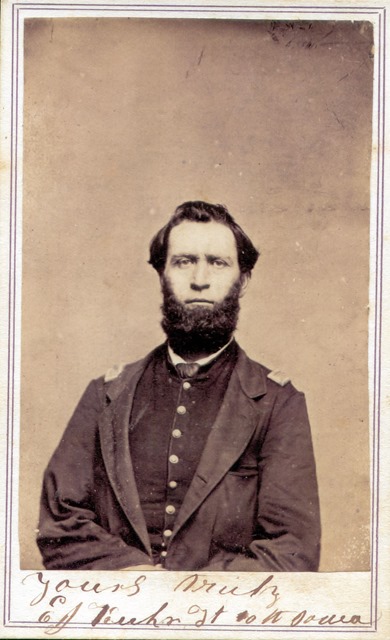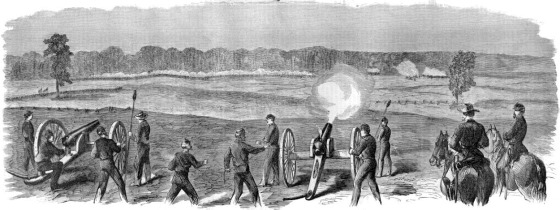Battle of Champion Hill, Miss.
Saturday, 16th.—7 A. M., drew some raw beef; were beginning to barbecue it, when, just at 8 o’clock, a few cannons were fired near us very unexpectedly. Formed immediately and marched back about two miles; skirmishing began before our lines were formed, and it was soon ascertained that the Federals were moving on us in heavy force. 10 A. M., battle opened with great fury on our left; our line was immediately moved to the left in quick time; formed under heavy fire, and in less than five minutes were charged with perhaps two lines of battle. The 34th Georgia was on our right, in a very awkward position, and being struck first, and having no support, after one or two volleys, broke and fled in wild confusion. The Federals pressed through the gap, and on our front at the same moment. Our boys, seeing this, became panic stricken, and in less than ten minutes, the whole brigade was in the wildest confusion. With the exception of about two hundred men, all efforts to rally the brigade were in vain. Having lost all their artillery and about one-fourth of their men, killed or captured, and the Yankees’ triumphant yells in rapid pursuit, whizzing Minnie balls and shells exploding in their midst, were not very soothing antidotes to their agitated feelings. Soon the whole of Stevenson’s Division was in retreat. Reinforcements came, but too late to be’ of much service, and soon we left the field, after having lost about four thousand prisoners and thirty pieces of artillery. Brother I. L., seriously wounded in right breast, called to me in the retreat, saying, “I am killed,” but was walking on. Just then I was ordered into line; the next moment he was out of my sight, in the woods, and I did not see him again until I arrived at home after the siege was over, when he was able to meet me at Tunnel Hill with a buggy. That was the greatest sorrow of my life, that I let him get out of my sight that day, and I spent the remainder of the day as we retreated seeking for him, but all to no avail. Colonel McConnell was also wounded, and this is what I wrote that day. Don’t know whether either of them came through or not. Army falling back to Big Black River. Many of our brigade killed, and great many captured. Some of Company F were captured on the line. William Graham supposed to be killed. In my hurry to get away, my hat fell off, and as I had paid $15.00 for it, I thought I had best not leave it, and picked it up. Just then some Yankee came at me and stuck his bayonet in my gun and knocked off my little finger nail, but I didn’t stop to thank him for it, and so hurried on after the other boys.











